When in the course of human events … (Declaration of Independence)
I was raised in the shadow of my father’s career. A fighter pilot who swore an oath to protect and defend the Constitution, and when necessary, wage war on behalf of government. A pawn on the chessboard of life or death, fighting for a nation raised from the ashes of war. The sacrificial lamb, an expendable component, while those at the top, the ones who would place the nation in conflict, exempted from putting their lives at risk. Yet, the wars he fought, were neither protecting, nor defending, but feeding a machine, bent on control:
But the safety of the People of America against dangers from FOREIGN force depends not only on their forbearing to give JUST causes of war to other nations, but also on their placing and continuing themselves in such a situation as not to INVITE hostility or insult; for it need not be observed that there are PRETENDED as well as just causes of war. (Federalist 4)
For thirty years, my father donned the uniform of the day, usually a flight-suit, and his office, the cockpits of successive more modern fighters as new replaced old. His sobriquet: Chico. Although, in time, he would be known as The Bandido! The original nickname came from a cadet-mate in flight school: Albert Plecha. He wouldn’t survive Korea, but left his mark flying, and in a name. While the “call sign” developed when Dad earned the right to command a squadron, the pinnacle of his career.
But his place in history arrived when he was charged with transitioning the Israeli Air Force (IAF) into the F-4 Phantom. No small feat when one thinks of world politics at the time. America was losing, both at home and abroad politically, the war in Vietnam. A manipulated conflict, government intentionally strangling the warrior’s ability to fight, much less “win.” Today WE THE PEOPLE should remember still and question why. But we don’t, desire more important than intent. When Chico stepped into his command position, the Tet offensive was in the nation’s rearview mirror, although the event had thrown even more fuel on the people’s desire to end the fiasco LBJ had placed the country in.
The Israeli swap to the Phantom if a failure, would announce to the world a weakness. At the time, there were no better fighters than the United States military. The Phantom itself, a multi-service platform, serving both air-to-air and air-to-ground missions. Trust me, words cannot convey the magnitude of importance the endeavor to transition the Israelis into the Phantom meant to America’s worldwide superiority. Ultimately, it achieved the mission goal and other unexpected benefits, both for the world and in the individual lives of the men involved. Foremost, the IAF today is one not to toy with. While some forty-six years after training in 1969, when I reached out to those involved to get their thoughts while writing a book, one spoke volumes:
Chico was a key personality and personal example for a squadron leader. I was deeply impressed by his high professional level, and his personal contact while instilling the USAF organizational tradition. Despite the language barrier, the different backgrounds, and our lack of experience in American aircraft and technology, when we came home at the end of Phantom training, we arrived into war. Leading the IAF combat operations, with the urgent need to establish two squadrons, instruct and train ground and aircrews, to define the role of the rear seat airman and maintain high morale in spite of losses and captives; through it all, I constantly asked myself what Chico would do. In hindsight, I can say that together, we were pioneers in upgrading the IAF organizational structure. (Avihu Ben-Nun)
Now, one can question LBJ’s reasoning for allowing the Phantom’s sale when the nation was neck deep in a conflict it had no desire to win but needed precious equipment to continue the war. Although, with the successful sale and implementation, Israel cemented its ability to protect and defend their sovereignty with the fighter and the training received. And if the impact of Ben-Nun’s words do not resonate, read them again. Now, for LBJ’s reasoning, most likely his personal glory, but his desire for America? Was it to protect and defend, or contort and confuse, knowing there are “pretended causes of war”:
To judge from the history of mankind, we shall be compelled to conclude that the fiery and destructive passions of war reign in the human breast with much more powerful sway than the mild beneficent sentiments of peace; and that to model our political systems upon speculations of lasting tranquility, is to calculate on the weaker springs of the human character. (Federalist 34)
So, to briefly go through America’s modern case for war, when the nation entered the Spanish-American war in 1898, Cuba was considered “The Gibraltar of America.” Some in the government desired the Island nation a State, and war, the decided ticket to achieve. Only statehood didn’t come afterwards, while the Bay of Pigs debacle in 1961 sealed the inability of America to do so, until.
Yet, with a win, the outcome of WW I, the Versailles Treaty. One Article: Germany would have an Air Force no more. Although, by 1938, they had one second to none in the world. A fairly simple affair to obtain when one studies history. And, in conjunction, Lindbergh, the first lone pilot to fly solo across the Atlantic in 1927, a national hero then, was cancelled by FDR after viewing the German air force. His only comment: America was not ready for war. FDR wanted war and nothing was to get in his way. The surprise attack on Pearl Harbor the outcome. But to whom was it a surprise? Those who fought, and cementing FDR’s ability to finish building the military complex in process.
Then, toward war’s end, when FDR, Stalin, and Churchill met at Yalta, two new super-powers were evident, while England was one no more. Churchill’s desire to make backroom deals with both knowing one would become the overall. But Japan, the last obstacle to world peace, only it wasn’t. Then FDR died, and Truman replaced him. With Truman, Stalin, and Churchill at Potsdam, the power of atomic power was proven, and world peace would never come. The race was on. Although, at the time, the problem for Truman, FDR had inked Japan a bad deal involving Russia. And, for hindsight thought, before FDR died, Stalin knew more about the bomb than Truman. FDR did not want Truman in the loop.
But Hiroshima and Nagasaki, a power play to prove America’s dominance as a super-power. The civilians, the guilty non-combatants, those obliterated, sacrificial lambs. Just like those previously fire-bombed in Tokyo when a contingent of civilians sought shelter in a pool, only to be boiled alive, not able to escape the flames of a burning city. Japan knew the gig was up, wanted to surrender, but world power was at stake, and war is Hell. Korea and a Cold War followed, ensuing the power play for world power. While the threat of nuclear war is becoming more pervasive, the only nation to date to use atomic power to destroy another: America.
Moving farther forward in the future, in 2003, when President Bush announced, “Mission Accomplished,” after putting America in another conflict, Iraq and Afghanistan destroyed the lives of thousands, both there and at home. When President Biden finally pulled the plug in 2021, twenty years after the initial invasion, a withdrawal fiasco itself. Both wars outcomes, America lesser in stature, those who profited, richer, and the power vacuums there left the world in worse shape to acts of terrorism. The individuals who fought, forgotten.
So, returning to Vietnam, when the nation pulled out of a conflict it started, it promised the Vietnamese government support. Only, it lied, and millions suffered the effects of a nation which quickly forgets its promises. Today, Ukraine is the newest objective for war. Only now, the stakes are higher, and more costly, as our government executes a multi-tiered conflict against its own people, those it swore to protect and defend. At the forefront, the self-imposed destruction of its southern border and national sovereignty. A desire to change America in whole, while claiming defense of another nation state’s border and sovereignty. A vicious cycle.
To look back historically, America’s independence was not settled at the end of the American Revolution. It required the successful conclusion in the War of 1812 to finally squelch England’s desire to maintain control. Then, as the years passed, even though the Framer’s desired a nation of peace, imperialism resulted in the nation’s push to expand. While the nation grew, including the number of wars it provoked, the individuals who fought and died for nation were forgotten.
While most donned the uniform for country, Chico, I believe, did so for the love of flying. He’d have gone to war against the Devil if government ordered. His willingness to sacrifice his life, a part of, even the “No Return Target” missions he flew. But yes, to this day, he loves his country, but not so much his government. Although, politicians, on the other hand, I believe, have objectives, the antithesis of constitutional intent. Today, Chico no longer uses the sobriquet. His given name, Roland, now his mode of introduction, Albert Plecha’s memory forgotten. And, with the vitriol espoused over the evil known as the United States by those in charge to protect and defend it, I wonder, when will America the nation, by choice, be no more?
By the time the last of the contiguous forty-eight achieved statehood in 1912, original intent had long been lost to the vagaries in the desire for absolute power, understanding “human events” and “pretended causes” are man-made: Every man who loves peace, every man who loves his country, every man who loves liberty, ought to have it ever before his eyes, that he may cherish in his heart a due attachment to the Union of America, and be able to set a due value on the means of preserving it. (Federalist 41)


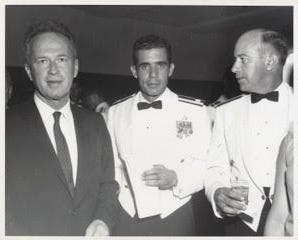
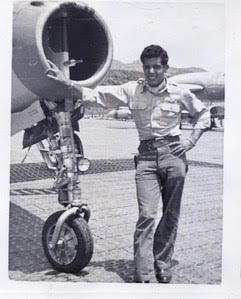
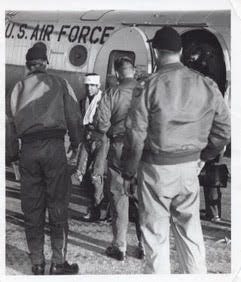
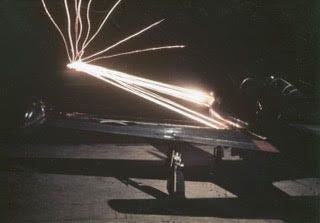
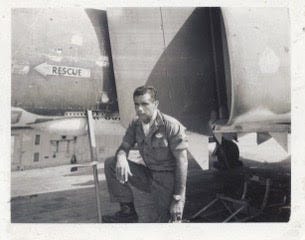
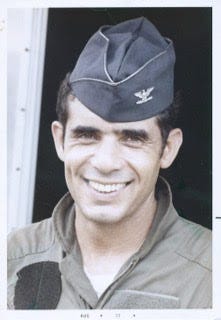
Ric, that article was SO interesting. Our dads were two amazing patriots!